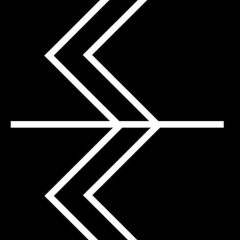In a video from 1988, Villém Flusser smokes a pipe and talks to an interviewer about two different types of complexity. There is structural complexity and functional complexity. The former has to do with the makeup of a given technology. For example, a television (or, in 2021 terms, an iPhone) is a structurally complex device. The latter has to do with, well, the function of the thing, how complex it can get. An iPhone doesn’t allow for very much in the way of functional complexity. You can click on your little apps, you can type regurgitated thoughts into Twitter…what else? Ah yes. E-mail. Photos. Pornography.
Chess, on the other hand, is structurally simple, yet functionally complex. There are an infinite ways to play a chess game, an infinite amount of complexity that can go into every move. Flusser would argue that a game like chess suggests freedom, whereas the more complex a structure, the less freedom you have.
Because we don’t understand how our technology works, we’re only able to use it in the way the designers intended it to be used. The results are largely uniform. How many ways can you photograph a sunset? How many movies have you seen that are just kind of the same thing, over and over again?
How might this apply to the novel? Is structural complexity limiting our artistic freedom? Indeed, a plot to a novel can be a very complex undertaking, though it is one that we construct ourselves. Or do we? By aping the structurally complex forms that have come before us, are we stuck taking the same picture of the same sunsets?
This idea suggests that you should deeply understand the technology that you are using, the math involved. If I had to guess, it’s because the deeper and deeper you get towards understanding a technology, the closer you get to what I call The Gap: that amorphous, floating blob of nothingness that must be accepted for the thing to work at all. You find this in math as well. Many such cases.
This is the mindset of the magician, a kind of shrug when you get to the alchemical heart of a working or a practice. An understanding that goes beyond words, that can only be exemplified through a string of technical images, the alien space wreckage of a tarot spread or combination of household items and blood.
Understanding, sure, but not aping. Knowing it enough to not take for granted that a structure needs to be there at all. Otherwise you’ll end up at the end that’s not worth reading, the kind that you can guess from the first sentence, maybe the second. Instead, perhaps, an ability to take apart the structure of the novel piece by piece, to understand what each knob and circuit is there for, so that you also know what kind of mortar fills the gap, so that you can rearrange the pieces or throw them out altogether, to get something alive and fun again. This is why no one reads right now. It’s not just because there’s cooler shit out there, if so, no one would post. It’s because we’ve got the learned helplessness of the screen and the page, and at least the screen promises us dopamine. A true functional complexity suggests freedom, which many people, if they knew they could get it, would chew away the arm that got stuck deep in the cookie jar so that they could breathe fresh air, so that they could be impossibly scared and alive again.
I hope your weekend is great. Have a good one!
